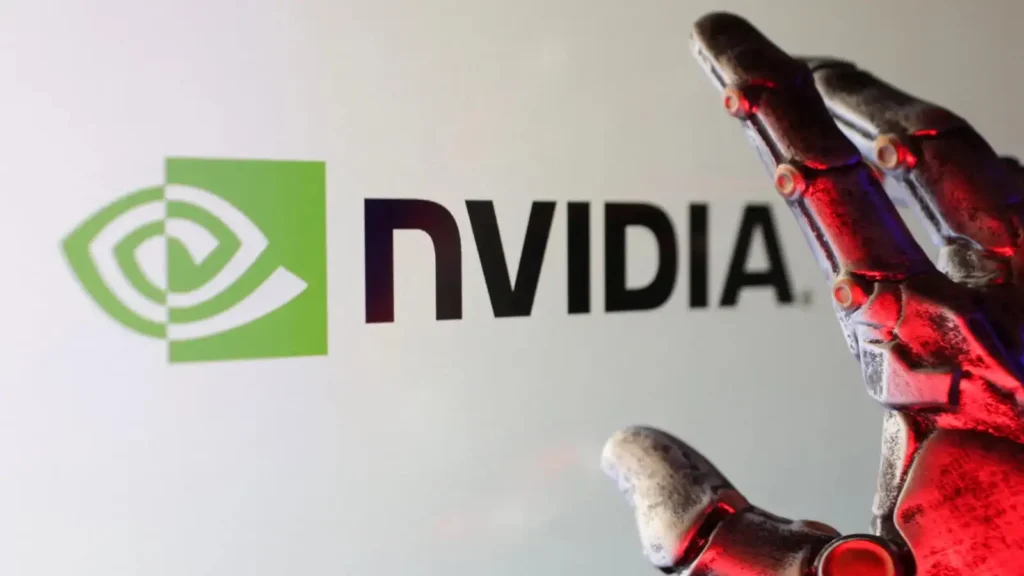In a significant move that echoes growing geopolitical friction over emerging technologies, the UAE-US AI chip deal has hit an unexpected roadblock. This pause is making waves in the global semiconductor and artificial intelligence sectors, especially for major players like Nvidia. As nations grow more cautious about where and how advanced chips are used, the world is watching the evolving relationship between the United States and its Middle Eastern allies—particularly the United Arab Emirates.
This development highlights how technology is no longer just a business matter but a central part of global strategy. In this article, we will explore the details behind the paused AI chip deal, its impact on Nvidia, the broader implications for US foreign policy, and how it could reshape the global tech landscape.
What Is the UAE-US AI Chip Deal?
The UAE-US AI chip deal refers to a series of technology partnerships involving the transfer or sale of advanced semiconductor chips—mainly GPU chips—from US-based companies like Nvidia to entities in the United Arab Emirates. These chips are vital components in powering artificial intelligence systems, including machine learning, large language models, autonomous systems, and more.

The UAE, keen on becoming a tech innovation hub in the Middle East, has been investing heavily in AI and digital infrastructure. Companies like G42, a leading AI and cloud computing firm based in Abu Dhabi, have played a central role in developing these capabilities with support from Western tech companies.
Why Was the Deal Paused?
The pause in the deal wasn’t due to commercial reasons but strategic concerns raised by the US government. Washington has grown increasingly worried about how advanced technologies—especially those involving AI—can be misused or potentially accessed by rival powers like China.

According to reports from industry insiders and national security officials, the US fears that AI chips supplied to the UAE may be indirectly shared with or accessed by Chinese entities. There’s growing unease over partnerships between UAE-based companies and Chinese firms. The Department of Commerce is reviewing chip exports more rigorously under new AI and semiconductor regulations.
The US government is effectively exercising more control over who gets access to cutting-edge tech, even if they are long-time allies.
How Nvidia Is Caught in the Middle
Nvidia, the world’s most valuable semiconductor company by market cap, is now in the spotlight. The company’s advanced GPUs, like the H100 and A100, are critical for training AI models. Nvidia had reportedly begun working with UAE-based clients to support their growing AI demands.
However, due to this deal pause, Nvidia is facing delayed shipments and frozen contracts. Investors are worried about losing access to the lucrative Middle Eastern AI market. The company may need to rethink or renegotiate its international strategies.
While Nvidia has not publicly commented in detail, the pause has certainly added a layer of uncertainty to its global expansion plans.

US Concerns Over AI Technology Export
The US government sees AI as a strategic technology on par with nuclear or aerospace development. The ability to train and deploy large-scale AI systems can influence military, economic, and political power.
Recent actions by the Biden administration include tightened export controls on AI chips to countries like China and Russia, investigations into foreign tech partnerships involving AI hardware, and increased pressure on allies to ensure “clean tech supply chains.”
The UAE’s growing closeness with both the US and China places it in a complex position, raising red flags in Washington.
The UAE’s AI Ambitions and Partnerships
The United Arab Emirates has been aggressively pushing forward its AI development goals. Initiatives like the National AI Strategy 2031 aim to place the UAE among the top countries in artificial intelligence.
Key partnerships include:
- G42 working with OpenAI, Microsoft, and other US firms
- Investments in building data centers and supercomputing infrastructure
- Collaborations with Chinese companies like Huawei in other tech areas
These dual alignments have sparked concerns about how AI technologies are safeguarded and who ultimately has control over them.
Global Implications of the Deal Pause
The suspension of the UAE-US AI chip deal is more than a bilateral hiccup. It could be a sign of a wider reshuffling of global tech alliances. Here’s why it matters:
- Other countries may hesitate to pursue US tech if deals can be halted mid-way
- China may use this opportunity to step in and offer alternative solutions
- Allies might need to choose between working with the US or China in critical tech areas
This moment represents a shift where AI is no longer neutral ground—it’s a new battleground for influence.
What This Means for the Semiconductor Industry
The chip industry, especially AI chipmakers like Nvidia, AMD, and Intel, relies heavily on international sales. Deals with governments and enterprises outside the US account for a significant portion of revenues.
With increased restrictions, export volumes could decline. Supply chains might be forced to become more regional or fragmented. There could be more lobbying from tech companies for clear, predictable trade rules.
Chipmakers now have to balance innovation with geopolitical sensitivity.
Reactions from Nvidia and the Tech World
While Nvidia has not issued a strong public reaction, the tech world is buzzing. Here are some reactions and implications:
- Tech analysts warn of a possible slowdown in global AI deployments
- Investors are concerned about market access and long-term revenue growth
- AI startups in the UAE may experience delays in training and product launches
- US allies are watching closely to see if they could be next in line for scrutiny
This could lead to a broader conversation about how AI and hardware access is governed across borders.

Potential Paths Forward
What happens next will shape not only US-UAE relations but also the future of global AI development. Some possibilities include:
Negotiated Safeguards
The US and UAE could agree on strict safeguards to ensure chips are not accessed by third parties like China. This could include on-site inspections, data governance protocols, and transparency agreements.
Alternative Suppliers
If US restrictions tighten further, the UAE might turn to other suppliers, including those from Europe or even explore building its own chip industry—although that would take years.
Multilateral Tech Frameworks
To avoid fragmented deals, the US might push for multilateral frameworks where allied countries agree on rules for AI tech sharing, similar to arms control treaties.
Continued Strategic Decoupling
The US could continue decoupling its high-tech ecosystem from countries with dual allegiances, further splitting the world into Western and Eastern tech blocs.
Conclusion
The UAE-US AI chip deal pause is a powerful reminder that technology is not just about innovation—it’s also about trust, control, and power. Nvidia, caught between business opportunity and national security concerns, illustrates the complexity of doing business in a tense global environment.
For now, the pause has created a ripple effect that touches diplomacy, economics, and technology. As AI becomes more important to every nation’s future, expect more scrutiny, more negotiations, and possibly more disruptions like this one.
The world is entering an age where semiconductors are the new oil—and the nations that control them will shape the future.
Do follow UAE Stories on Instagram
Read More: 33 of the Best Summer Staycation Offers in the UAE














